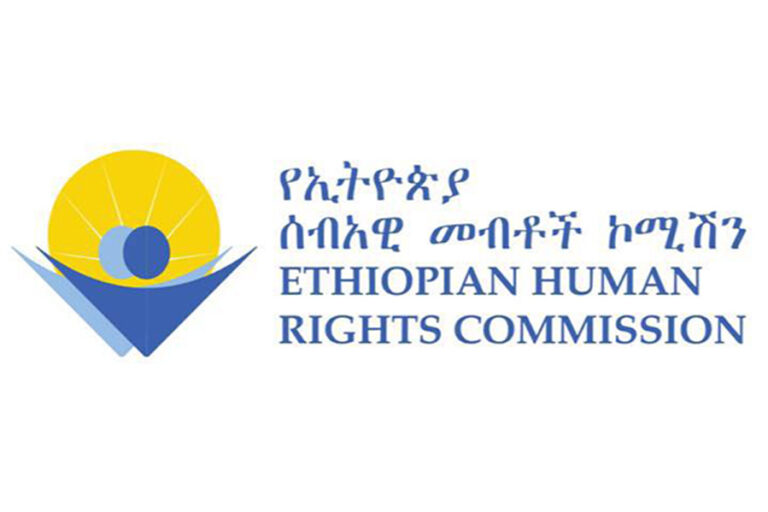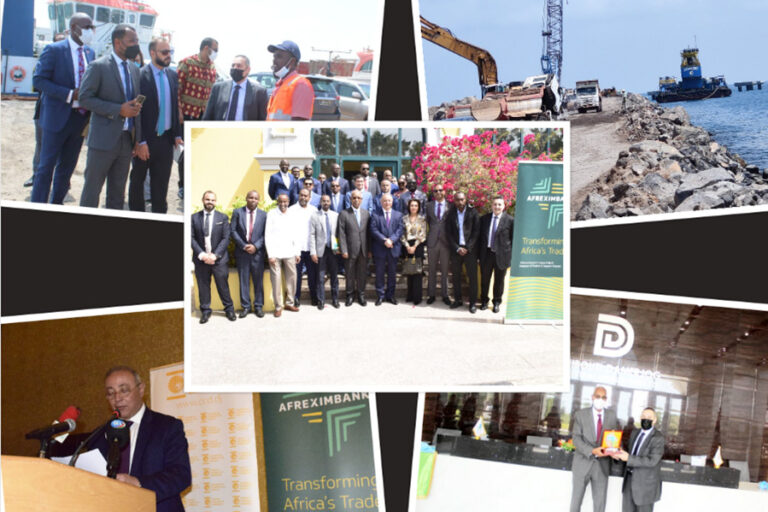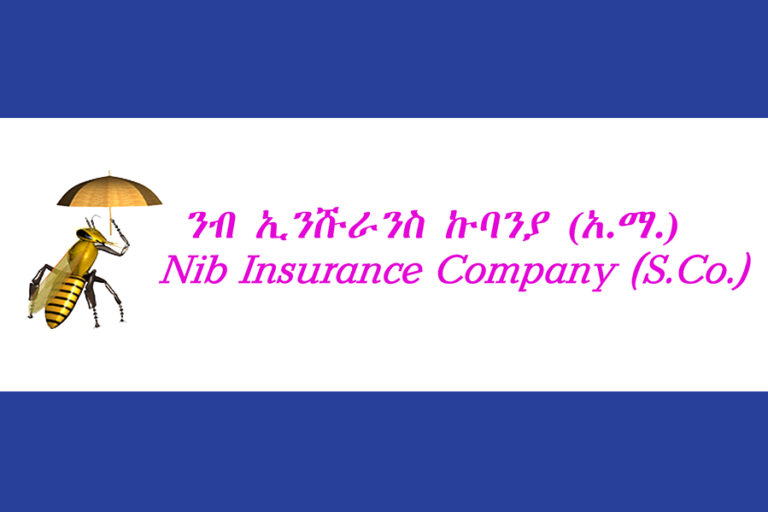Human rights violation that can be stated as war crimes and crimes against humanity has been committed by the parties of the conflict stated Ethiopia Human Rights Commission (EHRC) in its latest report Violations of Human Rights and International Humanitarian Law in Afar and Amhara Regions conducted between September and December 2021. The commission also stressed strong commitment of all actors indispensable to obtain justice for victims and rehabilitation of areas affected by the conflict.
The report released on Friday March 11, 2022 provides a detailed account of widespread human rights violations against civilians committed by parties to the conflict including its gender dimensions and calls on all actors and institutions to support justice and redress initiatives for victims and the rehabilitation of conflict affected areas.
According to the Commission’s main findings ‘without including the extrajudicial killings, at least 403 civilians have died and 309 have suffered minor to serious physical injuries as a result of acts of violence in the context of the conflict’.
On August 4, 2021 Tigray forces killed 107 civilians and injured 35 civilians in an offensive in the Afar region, the report states.
In parts of Afar and Amhara Regions covered by this investigation, at least 346 civilians have been subjected to unlawful and extra-judicial killing by parties to the conflict – mainly by Tigray Forces, according to the report.
Between August 18 to September 4, 2021, 6 civilians died in Adigagra, Abreham and Adagat kebeles in Amhara region due to the result of Ethiopian National Defense Forces (ENDF) heavy artillery. And in Woldiya city on December 18, 2021 due to attack by the ENDF 6 civilians were killed and 4 other were injured.
Between August 30 to September 4, 2021 and on December 2, 2021 Tigray forces committed 47 unlawful killing and other 40 civilians were killed by shooting who were attending a funeral in Amhara region.
In December 2021 ENDF executed 39 individual accusing them as members of the OLF in Amhara region Oromia special zone.
Tigray forces are also accused of committing acts of torture and other forms of cruel inhuman treatments against civilians.
Parties in the conflict are also accused of engaging in arbitrary detentions, abductions, and forced disappearances in violation of human rights and humanitarian laws.
Tigray forces also committed widespread and systematic sexual and gender based violence including gang rape against women of different ages-girls and elderly women in parts of Afar and Amhara regions under their control.
Tigray forces further caused damage and distraction to civilian homes, education, health and public administration facilities.
In Afar and Amhara regions, a total of 2,409 health facilities including hospitals and health posts have ceased operation as a result of the destruction, damage and pillage they sustained. In addition a total of 1,090 schools were fully destroyed while 3,220 sustained partial damage in both regions.
Financial institutions, in particular 18 commercial banks, sustained billions of birr worth loss due to looting and destruction on 346 branches.
In areas which were under their control, OLF-Shane also committed targeted killings of government officials and their family members and civilians they accused of supporting the government.
ENDF, Amhara Special Forces, Fano and other militias also committed unlawful and extrajudicial killing and caused physical injuries to civilians they suspected of supporting Tigray Forces or OLF-Shane.
EHRC’s 29-member team of investigators conducted investigations in many parts of Afar and Amhara regions affected by the conflict, covering over 50 locations in both regions and limited investigation of air raids took place in some parts of Tigray region.
The investigation team conducted 427 confidential interviews and held 136 meetings with various government offices and authorities; it also conducted 12 focus group discussions with religious leaders, community elders and internally displaced persons.
The main objectives of the investigation are to provide a faithful account of the human rights violations against civilians committed by all parties to the conflict, including its gender dimensions; to contribute to the process of holding perpetrators to account; to advocate for justice and redress for victims and survivors; as well as to prevent recurrence of similar violations.
Therefore the commission called for an impartial and credible criminal investigation consistent with applicable international human rights standards to ensure accountability. EHRC has reiterated that ensuring accountability for all violations committed by all parties to the conflict lies primarily with the Government.
Violations against civilians committed by all parties to the conflict: EHRC
The Network of Ethiopia Women Association
The Network of Ethiopia Women Association (NEWA) gathered women from various walks of life, institutions and inclinations at the Alliance Ethio-Française in commemoration of International Woman’s Day on March 8th. The venue, known for its wide range of arts activities did not fail, with walls filled by the contemporary art of eight Ethiopian women and signage with bold messaging including “AMPLIFY WOMEN’S VOICE FOR A BRIGHTER FUTURE”. Several spoke on the history and development of the women’s movement, combined with accounts of current efforts, sponsored by the Embassy of France, to strengthen civil society.
CCD, Afreximbank conducts roadshow for the business community
African Export-Import Bank (Afreximbank) and the Djibouti Chamber of Commerce (CCD) conducted a three-day business roadshow in the country, to promote the Bank’s programmes, facilities, and initiatives to stakeholders, including government agencies, parastatals, financial institutions and the businesses community among others.
The roadshow consisted of a one-day seminar and two days bilateral meetings with key stakeholders across sectors.
Under the topic “unlocking Djibouti’s potential as a gateway to regional trade”, the seminar had in attendance, key government leaders, policy makers, and senior leaders from the financial, banking, private and corporate sectors.
Youssouf Dawaleh, President of the Djibouti Chamber of Commerce, highlighted the strategic alignment between the roadshow and the CCD’s mission, which is to inform and raise awareness of the national economic fabric and more particularly private companies on market opportunities, financing and other support available.
He said “Raising funds and financing remains a continent-wide problem and our country is no exception to this situation. This results in limited growth for businesses and in particular SMEs”.
Amr Kamel, Afreximbank‘s Executive Vice President in charge of Business Development and Corporate Banking highlighted that Djibouti remains an important hub for African trade and the gateway of Horn of Africa and East Africa. To ensure that the business community benefited from the roadshow, Afreximbank highlighted various products, programmes, and initiatives such as the Intra African Trade initiative, Project Finance, Industrialisation and Export Development programme, Afreximbank Trade Facilitation Programme (AFTRAF), Afreximbank International Payment Services (AfPAY), the MANSA, Pan-African Payments and Settlement System (PAPSS), among others.
“We are happy to announce our commitment to working with Djiboutian commercial and development or investment banks to make financing accessible to the public and private sectors and small and medium-sized enterprises to finance trade and project deals in Djibouti. The Bank is keen to collaborate with Djibouti, other member countries and key partners to find solutions to these challenges. For instance, the recently launched Pan-African Payments and Settlement System (PAPSS) will enable a buyer in Ethiopia to pay for goods supplied in Ethiopian Birr and a Djiboutian seller to receive Djiboutian Francs, while the two respective central banks settle the net position of the trades between themselves,” Afreximbank‘s Executive Vice President in Charge of Business Development & Corporate Banking, commented:
Bilateral meetings were held with President Ismail Omar Guelleh, Ilyas Moussa Dawaleh, Minister of Economy and Finance; Yonis Ali Guedi, Minister of Energy and Natural Resources; Mohamed Warsama Dirieh, Minister of Trade and Tourism; Ahmed Osman Ali, Governor of the Central Bank of Djibouti; Aboubakr Omar Hadi, Chairman of Great Horn Investment Holdings and Mohamed Sikieh Kayad, Chairman of the Djibouti Sovereign Wealth Fund.
The Bank’s programmes for the development of industrial parks, export processing zones, special economic zones, Agri-processing projects, light manufacturing projects, among others, were discussed. The Afreximbank delegation also presented the Bank’s interventions to foster trade enabling infrastructure such as airports, seaports, terminals, railways, telecommunication infrastructure, power projects and renewables (wind and solar) as well as large manufacturing and heavy industries including oil and gas production and processing plants, liquefied natural gas plants, petrochemicals, and cement.
The delegation also met with the top executives of Air Djibouti, Société Internationale des Hydro carbures de Djibouti (SIHD), the FSD as well as several Djiboutian banks.
The Bank’s team also had the opportunity to visit the Damerjog Industrial Development Free Trade Zone and was received by Chairman Mr. AbouBakr Hadi as part of the continued collaboration with Djibouti Ports and Freezone Authorities (DPFZA). Discussions were on furthering cooperation in trade & projects finance.
Nib, Jamii.one launches micro life insurance coverage
Nib Insurance Company teamed up with Danish based social enterprise, Jamii.one to provide massive micro life insurance coverage.
The two companies have disclosed that the new initiative will make beneficiary those who are isolated for insurance coverage.
On the memorandum of understanding signing ceremony held on Thursday March 10, Nib officials said that the individuals who come up as group through traditional social relief scheme, edirs, will get life insurance coverage, which is the poorest insurance service provided in Ethiopia unlike other countries experience.
As per the new scheme, two types of compensation services is provided for those who save premium on daily bases through edirs linked with Jamii.one platform.
To get a compensation of 100,000 birr edir members will have to save one birr on daily basis, while if members save two birr per day they will be covered by 200,000 birr.
Mekdes Letta, Head of Life Insurance Division of Nib Insurance, said that under the group micro life insurance coverage scheme edirs that at least they should have 35 members and they will be be included on the scheme, “as we know edirs have on average have 100 members but the number we put as minimum members is just to fulfill some sort of criteria.”
“Initially the scheme will be introduced in Addis Ababa but will be expanded throughout the country,” Mekdes told Capital.
“Unlike conventional life insurance coverage on the new micro scheme there is no any preconditions or personal conditions will not be considered,” she added.
She said the initiative gives the opportunity to expand the life insurance segment with very small premium amount.
As per the agreement Jamii.one technological platform will create a linkage between edirs and the insurer.
Charlotte Roenje, CEO and Co-founder of Jamii.one, about her company said that it is a Danish company, but it was born and raised in Ethiopia, “so all the majority of our users are here. We have developed the technology in very close collaboration with more than 1,000 Ethiopians. Myself, my technical co-founder have sat in groups to develop a technology that would reflect how communities have their finances together, like, saving up together, and having insurance.”
“We have developed a genuine app, which is freely available. Anyone can download it and use it as a group. Register all edir members; register your savings, or contributions. And then, our ambition is to use that digital registry of people to allow them to have new products,” she said by adding “Jamii.one is a social enterprise. It is a company for profit, but it has a very strong social focus. We didn’t create this company to become very rich. We would have done something else if we wanted to be rich.”
She explained the edir institution is a very rich cultural institution, while it is also going into a new time and age, and whether young generation is digital and they have more offers.
“So, we believe by creating product specific for the edir groups we can strengthen what it is that they are giving to their members, give them more opportunity, starting with life and but the ambition from Nib Insurance and ourselves is beyond that and developing products that will safeguard the livelihoods of the communities of edirs,” Roenje told Capital.
The company is expanding heavily right now. There are more than 100,000 people in Ethiopia registered in the Janmii.one platform and more than 17,000 new people registering every month.
Tigist Bezu, Country Representative of Janmii.one said over three thousand edirs as a group have registered and use Janmii.one app that provided services in different local languages.
She said that in the past years the company was engaged on capacity building for different self-help associations to modernize their activities through digital scheme.
About Nib, Roenje said that the company specialized in micro insurance, and life insurance and so they are offering now their product of micro life insurance, group insurance to the edirs. “This is very difficult to do traditionally, because who is in the group? How can, you know? But now in the Jamii.one you have a registry that can show members; so it is now possible for Nib Insurance to service the segment.”
Regarding the interest of edirs about the new scheme Roenje said that there is a lot of interest, “it was actually not our idea. It was the idea of edir members. They said to us ‘can you bring us life Insurance’ and we said we will try and we are succeeding. From here we are learning we need guidance from local community and government. We need guidance to build and take this from a piloting and a test into something that can scale.”






